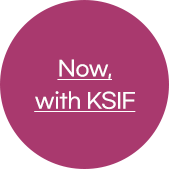
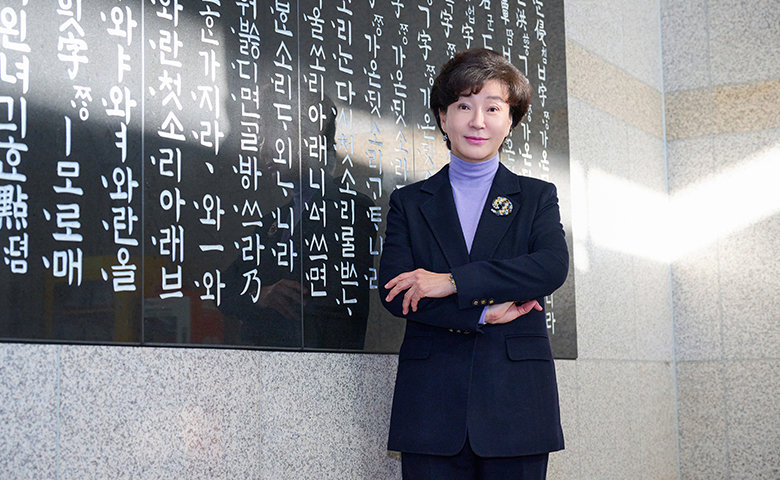
For the future of Korean, Spreading Worldwide
Director-General Chang So-won of the National Institute of Korean Language
The National Institute of Korean Language (NIKL) conducts research projects and provides the foundation for policymaking to advance the Korean language, and to enhance the language life of the people. To learn more about NIKL's diverse projects aimed at promoting efficient language-use among Koreans and learners of Korean, we met with Director-General Chang So-won.
Greetings, Director-General Chang. Thank you for agreeing to the interview. I understand that before becoming the head of NIKL, you worked as a professor in the Department of Korean Language and Literature at Seoul National University. Could you please tell us more about yourself?
Yes, certainly. Before becoming the Director-General of NIKL, I worked as a professor in the Department of Korean Language and Literature at Seoul National University for about 20 years. I also held positions such as Director of the Language Education Institute at Seoul National University, President of the Society of Korean Linguistics, and Director of the Literature Translation Institute of Korea — all the time engaging in activities related to Korean linguistics and Korean language education.
NIKL is known for compiling the Standard Korean Language Dictionary and providing language standards. Are there any other projects that focus on the development of the Korean language and enhancement of people’s language life this year?
Recognizing the essential role of writing skills in the daily lives and various tasks, NIKL has been placing emphasis on "Development of the Diagnostic System for the Writing Abilities of the Korean People" since 2023. To do this, we collaborated with nine partner universities nationwide to research diagnostic indicators, collect writing materials, collect evaluation data, and train evaluation experts. The outcomes include the development of diagnostic indicators for writing abilities.
This year, NIKL initiated the second-year project focusing on argumentative writing skills evaluation research. The Institute also aims to continue fostering logical thinking and systematic writing expression skills, preparing to meet future demand, and ensuring flexibility in operating an efficient and standardized writing evaluation system through the disclosure of writing diagnostic indicators.
I believe that the writing ability diagnosis system project of the National Institute of the Korean Language will be useful not only for schools but also for the recruitment of talents in public institutions and businesses, and contribute significantly to establishing a solid foundation for improving language abilities.
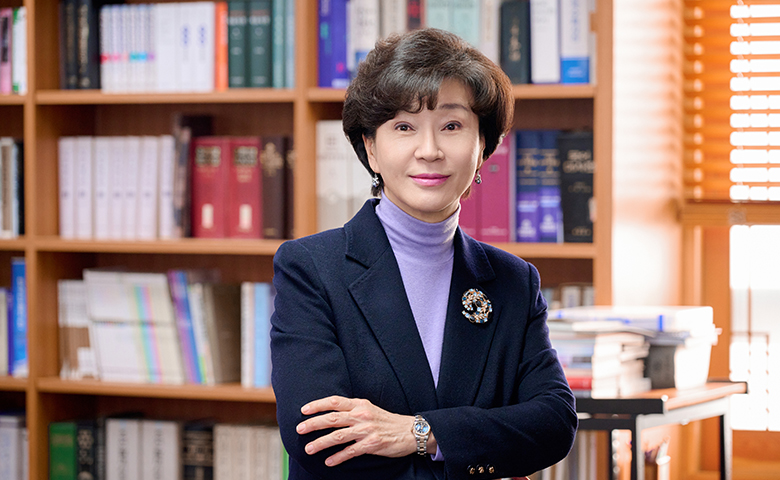
NIKL recently released a revised edition of the Korean language textbook "Sejong Korean" for foreign learners in 2022. How does this revised edition differ from the previous version?
Firstly, the revised edition reflects various everyday communication situations that can be practically used in daily life, incorporating feedback from KSI field experts. As the textbook was created by the Ministry of Culture Science & Technology (MCST), it includes a variety of Korean cultural contents, such as travel, broadcasts, and movies, allowing learners to experience diverse aspects of Korean culture.
Given that "Sejong Korean" is a basic textbook used in various regions, it needs to reflect cultural mutualism, aligning with the basic principles of overseas Korean language education. The revised edition, reviewed by gender and cultural diversity experts, minimizes gender and cultural conflicts.
Additionally, the revised edition provides flexibility in lesson operation by offering a file format for optional printing, and including supplementary activity textbooks for reinforcing grammar and communication skills. Overall, the updated "Sejong Korean" demonstrates NIKL's commitment to incorporating feedback from the field.
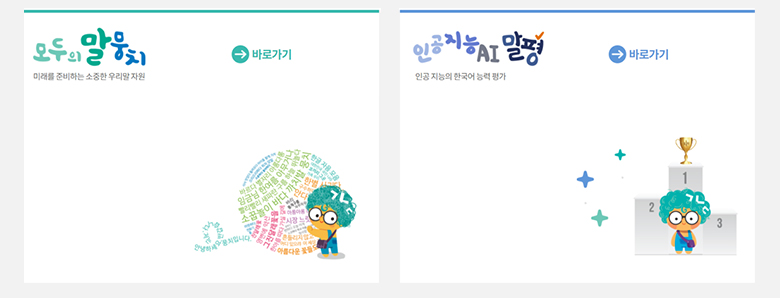 The National Institute of Korean Language is carrying out a project to help Korean language culture develop along with artificial intelligence.
The National Institute of Korean Language is carrying out a project to help Korean language culture develop along with artificial intelligence.
The era of artificial intelligence has begun. If artificial intelligence, such as ChatGPT or a voice recognition AI speaker learns high-quality language data, users will be able to enjoy more advanced services. That must be why NIKL is involved in projects “ModuCorpus” and “AI Malpyeong.” Please tell us how these projects impact the development of the Korean language.
NIKL is establishing a Korean language corpus to support the development of super-large AI technology. The created corpus, accessible to the public through “ModuCorpus,” is downloaded and used by many companies and researchers for AI technology development and Korean language research. “AI Malpyeong” serves as a comprehensive and objective evaluation system to check the Korean language capabilities of AI. Participants can assess their models on NIKL's homepage.
As generative AI, such as ChatGPT, starts to engage in communication with humans, it is having a growing impact on the language lives of people. In line with these trends, NIKL plans to support the development of AI technology that excels in Korean by establishing various corpora that preserve the characteristics of Korean language and culture and developing and operating evaluation tasks. We will also strive to ensure the development of Korean language culture along with AI.
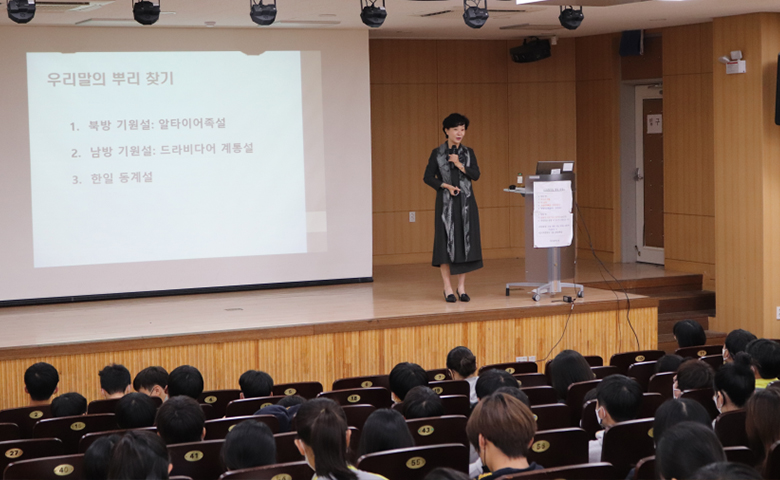 Director-General Chang So-won delivering a lecture at Visiting Korean Language Culture School
Director-General Chang So-won delivering a lecture at Visiting Korean Language Culture School
With the increasing influence of visual culture, there are growing concerns about the decline in language proficiency among modern people. I understand that NIKL is actively working to address this issue. Can you tell us about these efforts?
Issues such as the lack of Chinese vocabulary proficiency in the younger generation and the insufficient digital literacy of the middle-aged and older generation in the face of digitalization have been highlighted in the media. This may be attributed to differences in language sensitivity and changes in language environments between generations, leading to differences in language proficiency among household members. For this reason, the enhancement of national language proficiency and literacy should be considered a lifelong learning process required throughout one's life.
NIKL is operating a nationwide Korean Language Culture School targeting all citizens. This year, the project will expand to develop Korean language literacy education courses that can be utilized by relevant institutions and public agencies. The initiative is expected to contribute to improving citizens' literacy skills in reading documents, interpreting and understanding information, which are crucial in the information-oriented society
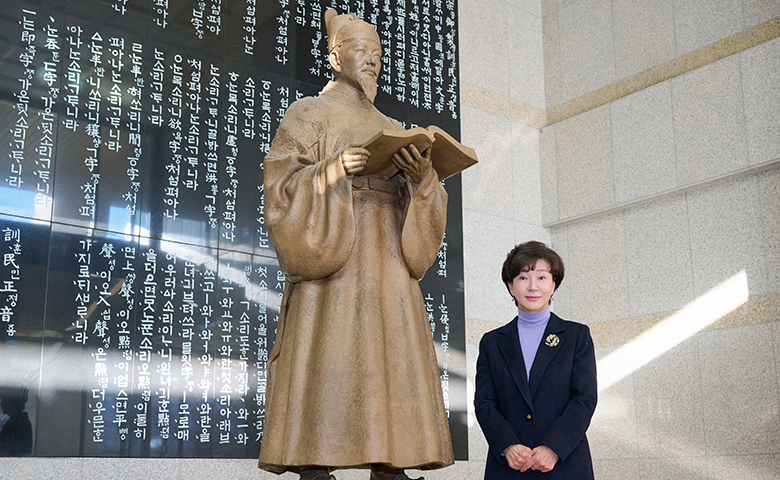
NIKL is also actively involved in the public language improvement project, aiming to make complex and difficult public documents more easily understandable. Could you highlight some major achievements of this initiative?
Yes, certainly. NIKL is conducting the Public Language Improvement Project to enhance public language, including counseling and proofreading for public language used in documents and evaluations of public language in public documents. Specifically, from 2010 to last year, NIKL conducted approximately 730 consultations and supported over 3,500 proofreading tasks for documents commissioned by central government agencies, local governments, and public institutions.
Furthermore, NIKL is studying and evaluating public language used in documents of all public institutions, including central government agencies and local governments. Additionally, the institute is working on projects such as refining difficult foreign terms into Korean through the Korean language refinement project and public translation project translating public terms and cultural terms into various languages (English, Chinese, and Japanese).
* Target institutions for evaluation in 2024: Total of 424 organizations including central government agencies (45), local governments (total 243 including metropolitan and local entities), educational institutions (17), and public institutions (119)
Given that the nation's major policies and various projects are communicated to the public through the language used in official documents, the use of clear and correct public language is crucial. Therefore, the National Institute of the Korean Language will actively promote projects for improving public language support. Additionally, we plan to develop the results into user-specific content and disseminate the results through accessible media such as the social media, aiming to spread more widely accurate and proper use of the Korean language.
As the head of NIKL or as an individual, do you have any aspirations or wishes for this year?
Firstly, I hope that all the projects planned by NIKL for this year will proceed smoothly, allowing our citizens and Korean language learners to enjoy a more convenient and efficient language life. Moreover, I wish for the health and well-being of each member of the NIKL to successfully carry out the many tasks planned by the institute. Lastly, to the readers of “Monthly Knock-Knock,” I hope you all have a valuable and prosperous Year of the Blue Dragon. Thank you!